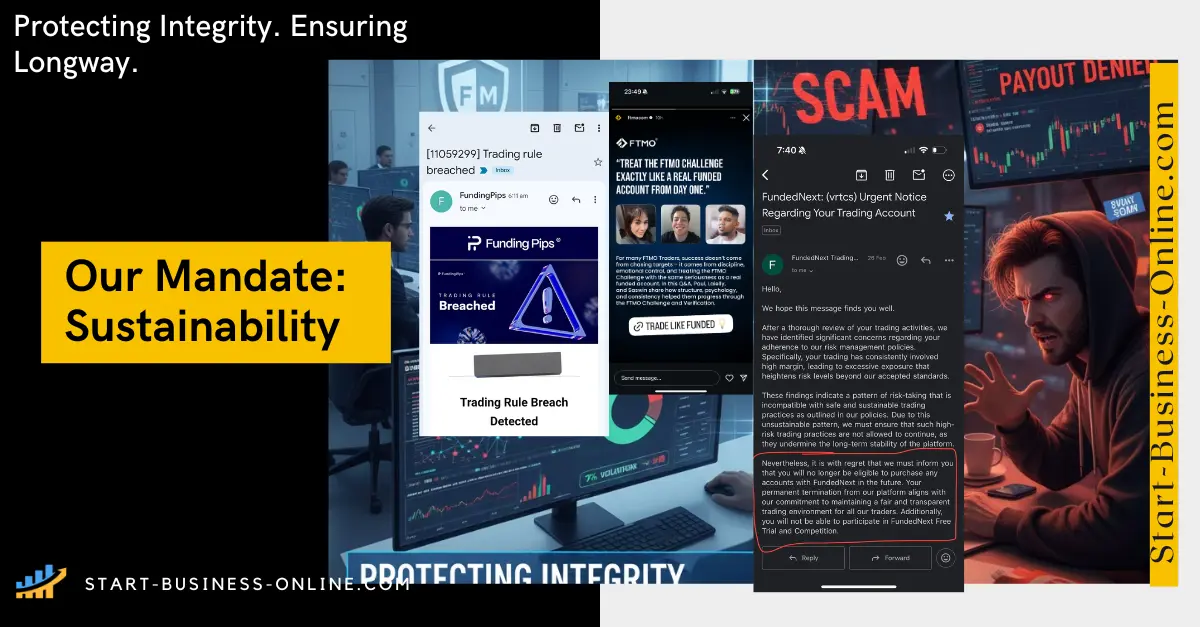Scalping stands out as a dynamic trading strategy, revolving around seizing opportunities by swiftly buying or selling securities to capitalize on minor price fluctuations within a short timeframe. Success in scalping depends on a trader's ability to execute numerous trades throughout the day, leveraging the tiniest market changes and movements. This high-risk, high-reward approach to trading, demands unswerving discipline, a battle-tested strategy, and an astute comprehension of market dynamics.
But, how can you be a successful trader through sculpting? You may unlock the secrets to effective scalping with these invaluable insights:
- Opt for Liquid Markets: Scalping flourishes in and it is most suitable for exceptionally liquid markets, frequently aligning with specific market sessions. Consider the bustling start of the day at the New York Stock Exchange, where traders and investors inaugurate their daily endeavors. The copious trading volume in such markets ensures frequent price fluctuations, simplifying your profit-making efforts. Furthermore, most proprietary firms, brokers, or trading platforms offer commission-free trading on indices, a beneficial edge you can harness to your advantage.
- Secure access to a Trustworthy Platform: Scalping requires lightning-fast trade execution, necessitating a dependable trading platform capable of handling high-speed transactions. Opt for a platform offering swift order processing, minimal latency, and a user-friendly interface. MetaTrader 4/5, developed by Metaquotes, stands out as the industry’s benchmark. Its enduring popularity stems from its simplicity in programming, delivering swift performance and an intuitive interface. For traders well-versed in advanced platforms, cTrader (Spotware) offers a comparable performance.
- Implement Take Profit and Stop Loss Orders: Prudent risk management involves setting Take Profit and Stop Loss orders for each trade. This safeguards against excessive losses and facilitates profit-taking before market reversals. As a scalper, your aim is to accumulate small, consistent profits throughout the day, as opposed to seeking substantial gains from a single trade. The settings for Stop Loss and Take Profit vary among traders, demanding a solid rationale. Novice scalpers may employ predefined Stop Loss and Take Profit levels, which are easier to implement.
- Harness the Power of Technical Analysis: A fundamental pillar of scalping, technical analysis thrives on indicators like moving averages, Bollinger Bands, and RSI to detect short-term trends and price movements swiftly. These tools empower you to make informed trading decisions with alacrity and speed.
- Stay Informed: Keep abreast of market news and events that hold sway over the trading instruments in your portfolio. This foresight enables you to effectively anticipate price fluctuations and adjust your strategy accordingly. While scalpers typically shy away from high-impact news due to heightened volatility and wider spreads, such events serve as strong indicators for higher time frame direction.
- Mitigate Risk: Scalping's inherent riskiness requires meticulous risk management. Adopt a stringent risk management plan, whether it's a maximum percentage of your account per trade or a predefined limit on daily trade counts. Evade the dangerous trap of chasing losses or allowing emotions to cloud your judgment. Take into account that risk parameters differ greatly between live and funded accounts, with funded accounts imposing maximum daily loss limits, compelling the careful and wise placement of Stop Loss orders.
- Improve your skill: Similar to all other trading strategies, scalping demands relentless practice and refinement. Kickstart your journey with a demo account, a safe arena to polish your strategy before committing real capital and running the risk of real losses. Vigilantly track your trades and scrutinize your performance, to uncover areas meriting further improvement and refinement.
Exploring Scalping Strategies: Beyond the Basics

In addition to the fundamental principles for successful scalping as a trading strategy discussed above, there are various additional nuanced approaches that traders employ to capitalize on fleeting price movements. Let's delve into a few alternative scalping strategies:
- Scalping with Moving Averages: This technique relies on the use of multiple moving averages to pinpoint short-term trends and align trades with the prevailing market direction. When a shorter-term moving average crosses above a longer-term counterpart, it can signify an opportune moment to buy, while the reverse holds true for sell signals. This method leverages the inherent responsiveness of moving averages to rapidly changing market dynamics.
- Scalping with the Order Flow: Seasoned scalpers keep a keen eye on order flow data, including bid-ask spreads, order book depth, and trading volume. By scrutinizing these elements, traders aim to detect transient imbalances in buying and selling pressure. It is during these moments of pronounced buying or selling activity that scalpers swoop in, strategically entering trades to capitalize on short-lived market inefficiencies.
It's important to be aware that mastering scalping demands a strong combination of skill, experience, and unwavering discipline on behalf of the trader. The rapid pace of scalping calls for instantaneous decision-making and a deft touch in managing risks, as profit margins per trade are often slender. Moreover, as already pointed out, executing successful scalping maneuvers typically requires access to advanced trading platforms equipped with lightning-fast order execution and minimal latency, enabling traders to seize fleeting opportunities with precision.
However, it's also crucial to acknowledge that scalping may not align with the preferences and aptitudes of all traders. This strategy needs vigilant market monitoring and can impose substantial mental demands on traders adopting it. Additionally, transaction costs, encompassing spreads and commissions, wield considerable influence over scalping profits. Thus, traders must also weigh these cost factors meticulously in their scalping endeavors.
In a nutshell, scalping stands out as a potentially highly profitable trading approach when executed with precision. To thrive as a scalper, you must cultivate discipline, refine your strategy continually, and attain an intricate comprehension of market dynamics, akin to the demands of intra-day or swing trading. The key to success lies in honing your skills and staying resilient in the face of its high-risk nature. By managing risk prudently and steadfastly guarding against emotional decision-making, you can navigate the intricate landscape of scalping with greater assurance. If you do become a successful scalper, then you may also want to reap further benefits by trading through a funded account offered by a prop trading firm.
Crucial Factors for Scalpers When Evaluating Prop Trading Firms

When embarking on the journey of selecting a prop trading firm as a scalper, a very careful assessment is vital, since the prop firm you choose will significantly influence your trading experience and potential success. Here are several key considerations for scalpers to keep in mind when evaluating prop trading firms:
- Challenge Level and Suitability: Begin your assessment by delving into the prop firm's challenge level. Scrutinize their rules, guidelines, and evaluation process to determine the degree of difficulty they offer. It's imperative to choose a prop firm that aligns with your skill level and experience. Some firms are more suitable for seasoned traders, while others cater to beginners. Opting for a firm that fits your proficiency ensures a trading environment conducive to your growth and success.
- Profit Sharing and Scaling Plan: The profit-sharing structure is a crucial aspect to scrutinize. Gain a thorough understanding of what percentage of profits the prop firm retains and what portion goes to the trader. Moreover, investigate whether the firm offers a scaling plan. A scaling plan is invaluable for scalpers as it enables them to incrementally increase their trading capital over time. This opens the door to expanded trading opportunities and the potential for substantial growth.
- Educational Resources and Support: The availability of educational resources and support materials is another critical factor. Seek out prop trading firms that provide a comprehensive suite of educational content. Access to these resources can substantially benefit scalpers by honing their trading strategies, bolstering technical analysis skills, and enhancing risk management techniques. Empowered with knowledge, scalpers are better equipped to make informed decisions and elevate their overall trading performance.
- Customer Support and Technical Assistance: The quality and responsiveness of customer support offered by a prop firm are also aspects of paramount importance. Efficient customer support plays a pivotal role in addressing inquiries, resolving technical glitches, and providing timely assistance when required. A prop firm equipped with dependable customer support ensures a seamless trading experience and equips scalpers with the necessary support to overcome any obstacles they may encounter.
- Community Engagement and Networking: Consider whether the prop firm that you are evaluating fosters a sense of community among its traders. This extends beyond mere trading platforms and encompasses online forums, social networks, or local meetups where traders can interact. A vibrant trading community facilitates the exchange of insights, strategy discussions, and the sharing of knowledge, while it also promotes transparency and encourages interactive communication. Engaging with like-minded traders provides valuable networking opportunities, mentorship possibilities, and access to a supportive trading environment.
Our Evaluation Process
In our quest to help you identify the optimal forex prop firm for scalping, our dedicated team of analysts embarked on an exhaustive research journey probing a plethora of brokers and proprietary firms. We meticulously scrutinized over 250 data points, spanning nine core categories for each prop firm, with the checklist continually evolving to keep pace with industry innovations and regulatory developments.
Our evaluative approach is grounded on comprehensive assessments of prop firms and their offerings, enabling us to furnish our readers with invaluable insights for selecting the most fitting broker or proprietary firm. To collect our data, we actively engaged in the process of opening live trading accounts, monitored live pricing and execution, and interacted with actual customer support representatives, wherever accessible.
The nine main categories that compose our expansive 250-point checklist encompass a broad spectrum of considerations. These categories include trustworthiness, fee structures, platform and tool offerings, tradable instruments, customer service quality, ease of deposit and withdrawals, diversity of account types, research resources, and educational material and opportunities provisions.
To pinpoint the premier forex brokers for scalping strategies, we accorded paramount importance to several key criteria. These include assessing the firm's permissibility of scalping strategies, the speed of execution, the broker's executionmodel (be it STP, ECN, DMA, NDD, or others), competitive trading fees, and the availability of scalping-friendly platforms such as MT4, MT5, cTrader, and TradeLocker.
Exploring the Advantages and Disadvantages of Scalping
Once you discern which prop firm or broker is most suitable for your own needs and requirements we will be ready to start trading using your scalping tactics. However, that will be the time to be certain you are fully aware of the associated pros and cons. Scalping, as a trading approach, presents a spectrum of benefits and drawbacks. Let's delve into some of the merits and demerits associated with adopting this particular trading strategy:
Pros of Scalping
- Profit Potential: Scalping shines in its potential for profitability by capitalizing on small price disparities. Through a focus on short-term market fluctuations, scalpers have the opportunity to accumulate profits over time, regardless of the broader market direction.
- Versatility in Market Conditions: Scalping is a versatile strategy that can thrive in both rising and falling market scenarios. This adaptability empowers scalpers to seize opportunities driven by short-term price movements, enabling them to navigate diverse market conditions with ease.
- Automation Capabilities: A noteworthy advantage of scalping strategies lies in their automation potential. Many scalping tactics can be programmed into trading systems. By encoding predetermined technical criteria, scalpers can automate trade executions, leading to time-saving and reduced reliance on constant manual oversight.
Cons of Scalping
- Increased Transaction Costs: The heightened frequency of trades inherent in scalping can translate into amplified transaction costs. Traders must contend with commissions on each trade, potentially impacting overall profitability. It's crucial to scrutinize these costs meticulously and ensure that potential profits outweigh the associated transaction fees.
- Time-Intensive Nature: Scalping demands a substantial time commitment from traders. The execution of dozens or even hundreds of trades daily necessitates ongoing market vigilance and rapid decision-making. This intensive approach can prove mentally and physically draining.
- Psychological Stress: Scalping places traders in the crucible of swift decision-making and simultaneous management of multiple trades. The frenetic pace of this strategy can induce psychological pressure and stress, particularly among less experienced traders. Success in scalping hinges on emotional discipline and the ability to navigate rapid market fluctuations with composure and thus it is not a sport for the light-hearted.
In conclusion, it could be argued that scalping as a trading strategy for prop trading offers both opportunities and challenges. Its focus on capturing small price movements within a short time frame can lead to frequent trades and potentially quick profits. However, it also demands a high level of skill, discipline, and risk management. Successful scalping requires traders to stay well-informed, employ effective technical analysis, and adapt swiftly to changing market conditions. While it may not be suitable for every trader, those who master this strategy can find it to be a valuable tool that could be very beneficial to their trading endeavors.
FAQs on Scalping Trading Strategy
Yes, many proprietary trading firms do indeed endorse scalping as a viable trading strategy. Nevertheless, it is advisable to meticulously review the individual rules and policies of each prop firm concerning scalping before becoming a part of their ecosystem.
Prop traders often use tight stop-loss orders to limit losses on each trade. They also diversify their trading strategies and avoid overtrading. In addition, the most reputable prop trading firms have risk management teams to monitor and control trader risk.
Scalping can be applied to various financial instruments, including stocks, stock indices, forex, commodities, and futures contracts. The choice of trading instruments will depend upon the trader's expertise and the firm as the variety and number of assets available vary from prop firm to prop firm.
Yes, many prop trading firms offer training programs including guidance on scalping strategies. These programs often include risk management training as well.
Yes, FTMO allows scalping as long as your trading is legitimate while respecting the rules. As a matter of fact, FTMO is considered one of the best Forex prop firms for scalpers due to its unique evaluation process, and comprehensive support resources.






